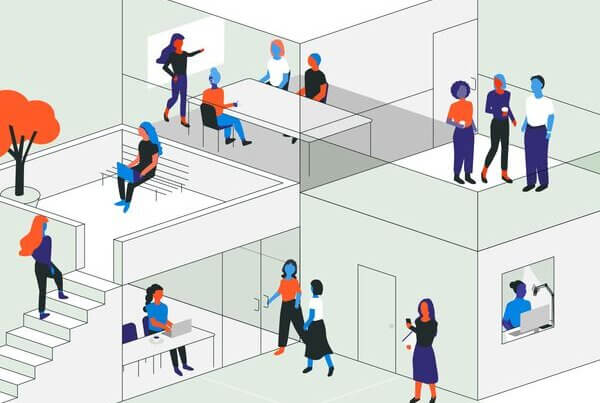This week the way we operate in our world changed. For everyone everywhere. While still processing the ways COVID-19 is upending our personal lives, we continue to do our jobs (if we can) and run our businesses. And that means, that in addition to all the operational and staffing issues you’re suddenly reacting to, there’s also customer communications likely being created with a pandemic looming large as a backdrop.
So, do you communicate? Do you not? And if you do, what tone should you take? Is it business communication as usual? No. But is it important to communicate? Yes!
Because your customers need to hear from you.
While we’re all feeling our way through this, there are a few crisis communication guidelines that make sense when not much else does and will help you frame customer communications that build trust.
What’s your motivation?
In the “human touch” industries customers want to know how you’re taking precautions given COVID-19 and how they can take precautions when they interact with you. Peoples’ lives cannot stop, so they’re hungry for information … what happens at my grocery store, my gas station, my dentist, my salon, my coffee shop, my gym, etc. Approach customers with the motivation of genuinely helping them through this tough time given the tools/products/services you offer. An excellent email from Target’s CEO hit my inbox 3/11 detailing how all Target stores are stepping up. It addressed cleanliness, increased efforts to disinfect, plus restocking plans for the basics that have been selling out. It presupposes we will still need to go to Target and then eases our minds for when we do. Business won’t grind to a halt. It can’t because this will eventually subside and until it does, people still need to fulfill the most basic needs of their lives (albeit in an abbreviated way). If companies use “how can I be of service?” as the guide to drive communications in this time of panic, they’ll avoid appearing tone-deaf, keep their businesses connected to their customers, and deepen trust.
Will this create more questions?
In uncertain times, people have TONS of questions. Anticipate their questions and answer them before they ask. When you are creating any message, if it raises unanswered questions, think about how to rework it.
There’s enough uncertainty right now. Don’t add to it. And, if you cannot avoid communicating something important but uncertain, let people know that this information is rapidly changing and may change again. Before you develop a communication, it’s helpful to create an internal Q and A. That could include things like:
- Given the nature of your business, what will your customers want to know right now?
- Are you open?
- What are your cleaning procedures?
- Staff and customer protective measures?
- Cancellation and refund policies?
- Your mission?
- What you offer that could help them get through?
- Your qualified perspective on how COVID-19 impacts your business as it relates to their needs?
- How your customers should interact with you so you can continue to provide service?
Are you adding value?
What resources do you offer that can help? You are an expert in your industry and you have a knowledge base that is unique. In what ways does your knowledge help make this situation better? Are you a packaging company? Do you know how to best handle packages to prevent the spread of viruses? Are you a gym? Do you have at-home workouts or wellness resources (or content) you offer to help people stay healthy, reduce stress and boost their immune systems? Are you a cleaning company? Have you added hours to help people with deep cleaning and are you using products that effectively combat the spread of germs? There are so many ways to be of value.
It is scary to communicate in a time like this. It felt scary to communicate after 9-11 and the swine flu, too. And, like our government officials and major industries making huge decisions to close schools, limit gatherings, suspend flights and cancel events, you want to get it right. There’s no playbook or list of best practices in this situation because we’ve never faced it. But we are all truly in this together and if we can help each other in the ways we are qualified to help, we’re doing the best we can.



